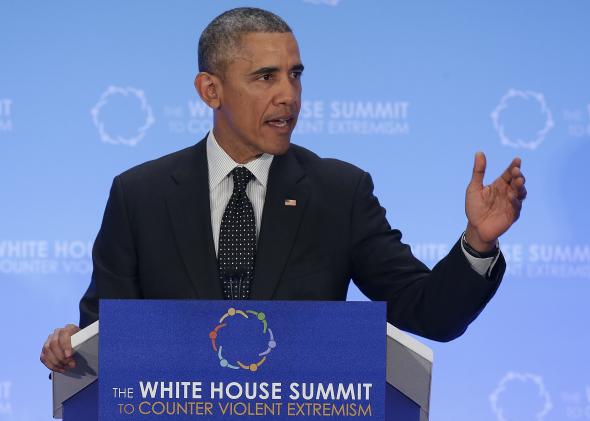In combatting extremism, a two-tiered approach is required

The “Countering Violent Extremism” summit held in Washington has been a source of much discussion due in part to its stated focus on policies that go “beyond force” and curb recruitment of disaffected youth by organizations such as ISIL.
President Obama and Vice President Biden minced their words when addressing extremist threats such as ISIL and Boko Haram, and were emphatic in stating that these organizations’ maxims stray considerably from the principles set forth in the Quran. Though the ideas discussed during the summit were numerous, ultimately what the Obama administration sought to prioritize was offering alternative narratives to that offered by extremist organizations and increased contact with community organizations across the United States
The odds of reaching goals such as those outlined during the summit can be improved by making a concerted effort to engage isolated and disaffected youth most likely to leave their communities for combat zones where they are promised, if nothing else, relevance and a cause for which they can fight. ISIL has deliberately targeted communities of marginalized youth in the United State, Europe and elsewhere, with great success. In order to curb the flow of American and European citizens destined for war zones, engagement with community leaders in areas with larger-than-normal amounts of radicalization has similarly been prioritized. The American cities of Minneapolis, Los Angeles and Boston, and the Canadian city of Hamilton – all home to communities targeted by ISIL – have already implemented these programs, with limited amounts of success, according to the Obama administration.
Combatting extremist at home, while described as paramount to ultimately neutralizing the capabilities of organizations such as ISIL, is only half the battle for the Obama administration. The other half lies in urging Sunni nations to undertake similar actions, to convince them to monitor the outflow of funds destined for Syria and other known extremist hotspots, and to institute congruous anti-radicalization programs as those already extant in Saudi Arabia and elsewhere. This will not be an easy task for the Obama administration. The United States lacks any semblance of credibility in most of the Middle East, particularly in Syria, due to a lack of material support for anti-Assad rebels. A history of meddling in Egypt, historical support for Israel and rapprochement with Iran will also work against the Obama administration’s goals. These issues notwithstanding, ISIL has proven to be indiscriminate in choosing its targets, and its Syrian and Libyan sects have drawn the ire of leading Arab states in Northern Africa and the Middle East. Continued collaboration should be a priority to the Obama administration, as long as the nature of the collaboration is not seen as a hindrance. Judicious support for states in the region could set the stage for a longer trust-building process that will not only improve US relations with Sunni states but also eliminate the narrative of injustice and Western oppression that is currently such an effective recruiting tool.
Eric Wheeler